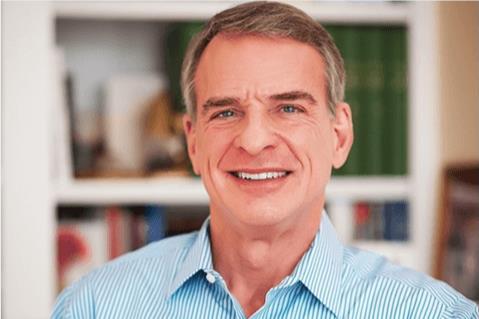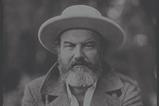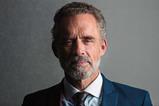He’s been dubbed the Christian apologist who puts the fear of God into leading atheists. So what’s so scary about William Lane Craig?

Type ‘William Lane Craig’ into Google and you find some surprisingly varied views.
For example, you’ll find Rick Warren tweeting about his ‘friend’ for whom he has written a recent foreword, and other Christian leaders praising an academic who combines intellect with humility.
On the other hand, you may come across Richard Dawkins labelling him a ‘ponderous buffoon’ along with other commentators on his atheist website who describe Craig in even more colourful terms.
So what is it about one American philosophy professor that inspires such divergent views?
Craig is arguably the best known defender of the intellectual case for Christianity in the world today. As a philosopher, his work is published in academic journals and books. As a popular apologist for the existence of God, his high-profile debates with leading atheists have been viewed by hundreds of thousands around the world. His style is polished, systematic and devastatingly thorough. To his fans he is the commanderin- chief of a resistance movement against the populist New Atheism – the man who can floor Goliaths such as Christopher Hitchens and Sam Harris. To his detractors, he is a wordsmith and a showman – a professional debater who, to quote Richard Dawkins, ‘brandishes impressive-sounding syllogisms from Logic 101 to bamboozle his faithhead audience’.
To me, he comes across as sincere, humble and somewhat bemused by the opinions that are expressed about him online. Is he affected by the words that some atheists write about him? Laughing, he responds: ‘It doesn’t get to me because I don’t read it. I am in blissful ignorance of what these folks are saying about me.’
So why is Richard Dawkins even bothering to comment on William Lane Craig? It is because he has refused multiple invitations to debate Craig when he comes to the UK this October.
They met once briefly in a panel debate in Mexico in 2010, an encounter that led to those online comments. Craig’s supporters (and many of his opponents) would like to see a more substantive one-on-one debate, but Dawkins has resolutely refused to face the philosopher again. To Craig, it is a confirmation that ‘New Atheism’ is more bluster than substance. ‘I would describe it as a pop culture movement, rather than a serious intellectual one. But as pop culture I do take it very seriously. They have the momentum, and it’s very important that we as Christians expose it for the superficiality that it is.’
Nonetheless, a turn of events seems to suggest that it’s not just Dawkins who is unwilling to have his arguments against God put to the test.
Dawkins has refused to debate you. So has atheist philosopher AC Grayling. Now the British Humanist Association president, Polly Toynbee, has just pulled out of debating you, having initially agreed. Why aren’t these leading atheist voices in the UK stepping up?
I have a hunch that these folks must be talking among themselves, and I say that not simply because of this pattern of withdrawal and refusal, but from a remark that Sam Harris made in my debate with him recently. He opened his speech saying that I was ‘the one Christian apologist who seems to have put the fear of God into many of my fellow atheists’. My ears pricked up and I thought, ‘That’s interesting. He’s been talking to other people about this, evidently.’ I have a hunch that some of these folks have come to the conclusion that it just isn’t profitable for them to engage in this kind of debate.
You’ll be visiting Oxford on the tour, the hometown of Richard Dawkins. Why won’t the world’s best known atheist debate you there?
I have information from someone who is in a position to know that the reason Dawkins doesn’t want to engage in a debate is really nothing to do with me. Richard Dawkins was smarting so badly from the fact that your own UK apologist John Lennox took him to the [cleaners] that he simply doesn’t want to engage in these kinds of encounters any longer. He was embarrassed by his performance in the Lennox debates, and so he doesn’t want to get into that position again.
How did your faith journey begin?
I’ve always had a God-consciousness. When I looked out at the universe and the stars at night as a young boy, I sensed that there had to be some sort of a creator that brought all of this into existence, but God was a distant blur to me. When I became a teenager I went through a period of deep despair, asking questions about the absurdity of life, and whether we are doomed to death. Then I met a girl who was a radiant Christian, and she told me that God loved me. It staggered me that the God of the universe could love me. That lit a fire, which ultimately led to my making a personal commitment to Christ.
At that stage you didn’t have the wealth of knowledge you have now. What did you need then to make a considered decision?
I read the New Testament from cover to cover, and the life and teaching of Jesus had the ring of truth. There was a wisdom and authenticity about it, and I found myself attracted to Jesus of Nazareth. I never really doubted him, but the existential question remained – would I give my life to this person?
It’s a question many people are confronted with. If you are convinced by the arguments, what brings that step of faith?
Theologically speaking, it is a work of the Holy Spirit. As I read the teachings of Jesus, the Holy Spirit of God was bearing testimony with my spirit. You either yield to the drawing of the witness of the Spirit, or you close your heart on him.
Your Kalam Cosmological Argument is among a number you use to show evidence for God. You say the Big Bang is evidence that God created the universe. But if the science changes, does the evidence for God disappear too?
The way that we know Christianity is true is through the witness of the Holy Spirit. So it’s important to say that these arguments are not the basis for Christian faith, but are rather confirmations of what the Holy Spirit tells us independently. However, I would say that the evidence for the fact the universe had a beginning has historically been supported by philosophical arguments going back to the third century. Only in the late 20th century has scientific evidence emerged. When I began working on the Kalam argument at university, I began looking at contemporary cosmology for some confirmation of this conclusion, and I was stunned to discover how powerful the empirical evidence is for the beginning of the universe at the Big Bang. But even if the scientific evidence were to evaporate, you still have the philosophical arguments.
Recently Stephen Hawking claimed that God is redundant as an explanation for the universe. He’s an eminent scientist and you’re not, so what right have you to disagree with him?
I would not presume as a nonphysicist to criticise Professor Hawking’s science. When it comes to physics, he is the teacher and I am the pupil. But by the same token, when Professor Hawking begins to draw philosophical and theological conclusions as a result of his work, then he has entered into my area of specialisation and he needs to be patient of correction when he makes a misstep. His own model implies an absolute beginning of the universe. It is in the realm of philosophy and metaphysics that I think he makes his mistakes when he thinks that it doesn’t require the existence of a transcendent cause to bring the universe into being.
The average Christian does not have your academic ability. Where should the ordinary person start when chatting with their nonbelieving friend over the garden fence or in the pub?
It’s important to understand that we don’t lead with apologetic arguments. With most people you simply share with them what Christ means to you, how he’s changed your life and the difference that’s made. You only recur to arguments and evidence if the unbeliever has questions or objections. Then, if the person asks a question and you don’t know the answer, be honest and say ‘That’s a really good question – I don’t know, but I’ll look into it. Then let’s get back together and talk some more.’
You’ve debated leading atheists all over the world. What is your ultimate hope in participating in these events?
Well, one hope is to help to reshape Western culture, which has become deeply secularised, so that Christianity becomes an intellectual option again. I hope especially to reach out to British students seeking for truth and to show that making a commitment to Christ is not a delusion, but perfectly in step with the dictates of reason.
Is this a biblical approach to evangelism?
I think so, especially in Acts. Paul would argue from the scriptures with his Jewish brethren that Jesus was the Messiah. When dealing with a Gentile audience he would present reasons from nature and conscience, moral and cosmological arguments, and appeal to the eyewitness testimony of Jesus’ resurrection. Paul would do things like rent the Hall of Tyrannus and hold daily lectures there to argue and discuss with anybody who wanted to come. So I see myself as very much following the model of Paul.
Your academic debates are quite rigorous, but you also debate popular atheists such as Christopher Hitchens, who tend to use a lot more rhetoric.
I’m afraid I don’t enjoy those debates with journalists and New Atheists as much because they are, frankly, so unsubstantive. It’s usually just them making appeals to the audience. When I did my last UK speaking and debating tour, in three out of the four debates my opponents brought up George Bush as one of the most potent objections to the truth of Christianity. I ask myself, ‘How does George Bush claiming to be a Christian show that God doesn’t exist or Jesus didn’t rise from the dead?’ It’s just so obviously an attempt to push the hot buttons of those in the audience.
One atheist blog reported that you ‘Spanked Hitchens like a foolish child’. The debate format is adversarial – winners and losers. Is that a danger?
I don’t think there is a danger from my point of view because I never attack the other person. I treated Christopher Hitchens with utmost respect in that debate, and I never use derogatory or personal attacks. I’m interested in showing that the case for Christian theism is better than the case that my opponent is defending.
How do you prepare for the debates spiritually? Is much prayer involved?
Yes, we do pray for those I debate against, and my wife prays for me, for which I’m very grateful. I say the secret of my success that my opponents don’t understand is that I have a praying wife. I try to keep my life clean so that the Holy Spirit can speak through me. Spiritual preparation is important too.
The Internet is rife with discussions between atheists and Christians that seem to be about winning an argument.
The commission that Jesus has given to his followers is that we should win people, not arguments. Some people have sincere questions and objections to be dealt with, but they are not an end in themselves. They are a means by which we hope to reach people.
Are local churches failing young people by not preparing them for the tough questions they run into at university?
I think we are failing them. If we simply read our children Bible stories and give them entertainment and emotional worship experiences, then we are leaving them unprepared for the tremendous intellectual challenges that they will encounter in secondary school and university. I think it is vital that from an early age Christian parents teach their children to think ‘Christianly’ about the world, and to articulate and defend what we as Christians believe.
Do you see people becoming Christians through your ministry?
We really do. It happens when I speak on a university campus…people will register commitments through comment cards at the meetings, and there are also the wonderful emails that we receive weekly from people all around the world saying ‘Thank you, thank you, thank you, this has transformed my life.’ Added to that is the effect that this has had in the lives of people who are Christian believers. Once they become confident that this is really the truth, it has an energising effect on them that makes them want to share the gospel. It gives them a zeal for God and a desire to read his word and know him.





































No comments yet